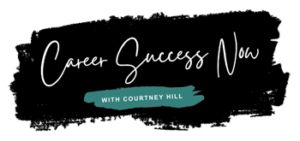Outplacement Counseling: Empowering Employees Through Career Transitions

I. Introduction In today’s ever-evolving job market, organizational restructuring and workforce downsizing have become common occurrences. In such times of change, companies face the challenge of supporting employees who are transitioning out of their roles. Outplacement counseling emerges as a valuable resource, offering guidance and assistance to individuals navigating career transitions. This article explores the […]
Outplacement Program: A Comprehensive Guide

I. Introduction Purpose of the Outplacement Program In today’s dynamic business environment, companies often face the difficult decision of downsizing or restructuring, leading to workforce reductions. An outplacement program aims to support employees during these transitions, providing them with the tools and resources necessary to secure new employment and manage the emotional stress associated with […]
Career Coach Assessment: A Comprehensive Guide

I. Introduction Purpose of Assessment Career coaching has become an essential service for individuals seeking to navigate their professional journeys, whether they are just starting out, contemplating a career change, or aiming to achieve specific professional goals. The purpose of this assessment is to provide a thorough evaluation of a career coach’s effectiveness and suitability […]
Career Coaching Services: Your Path to Professional Success

I. Introduction A. Definition of Career Coaching Career coaching is a professional service that helps individuals navigate their career paths. It involves a collaborative relationship between a coach and a client, where the coach provides guidance, support, and expertise to help the client achieve their career goals. Career coaching can cover a wide range of […]
Resume Help: Crafting the Perfect Resume

In today’s competitive job market, having a well-crafted resume is crucial for standing out to potential employers. Your resume is often the first impression you make, and it needs to effectively showcase your skills, experience, and qualifications. This article will guide you through the essentials of creating a compelling resume, common pitfalls to avoid, and […]
Do I Need a Career Coach?

I. Introduction Navigating one’s career path can be a challenging and often overwhelming endeavor. With the rapid pace of changes in industries and job markets, individuals may find themselves at a crossroads, unsure of their next steps. This is where career coaching can play a pivotal role. Career coaching offers personalized guidance to help individuals […]
Resume Buzzwords: Enhancing Your Job Application with Effective Language

I. Introduction In today’s highly competitive job market, a well-crafted resume is essential to stand out from the crowd. One key element that can make or break your resume is the use of resume buzzwords. These powerful words and phrases can capture the attention of hiring managers and Applicant Tracking Systems (ATS), increasing your chances […]
Professional Resume Writers: Enhancing Your Career Prospects with Expert Assistance

I. Introduction In today’s competitive job market, a well-crafted resume is crucial for standing out among countless applicants. Professional resume writers play a vital role in helping job seekers create resumes that highlight their skills, achievements, and unique value propositions effectively. This article delves into the world of professional resume writers, exploring their roles, benefits, […]
Career Coach vs Recruiter: Understanding Their Roles and How They Can Benefit Your Career

I. Introduction Navigating the complex landscape of career development and job searching can be challenging. Two key professionals who can assist in this journey are career coaches and recruiters. While both play essential roles in helping individuals achieve their career goals, their functions, approaches, and outcomes differ significantly. Understanding these differences is crucial for making […]
